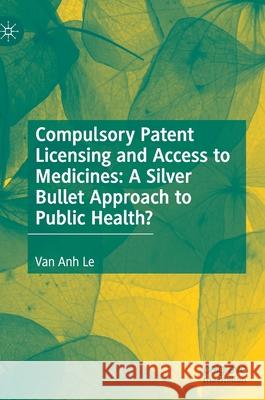Compulsory Patent Licensing and Access to Medicines: A Silver Bullet Approach to Public Health? » książka
topmenu
Compulsory Patent Licensing and Access to Medicines: A Silver Bullet Approach to Public Health?
ISBN-13: 9783030841928 / Angielski / Twarda / 2021 / 246 str.
Compulsory Patent Licensing and Access to Medicines: A Silver Bullet Approach to Public Health?
ISBN-13: 9783030841928 / Angielski / Twarda / 2021 / 246 str.
cena 403,47
(netto: 384,26 VAT: 5%)
Najniższa cena z 30 dni: 385,52
(netto: 384,26 VAT: 5%)
Najniższa cena z 30 dni: 385,52
Termin realizacji zamówienia:
ok. 22 dni roboczych
Dostawa w 2026 r.
ok. 22 dni roboczych
Dostawa w 2026 r.
Darmowa dostawa!
Kategorie BISAC:
Wydawca:
Palgrave MacMillan
Seria wydawnicza:
Język:
Angielski
ISBN-13:
9783030841928
Rok wydania:
2021
Wydanie:
2022
Numer serii:
000826171
Ilość stron:
246
Waga:
0.39 kg
Wymiary:
21.01 x 14.81 x 1.27
Oprawa:
Twarda
Wolumenów:
01
Dodatkowe informacje:
Wydanie ilustrowane











